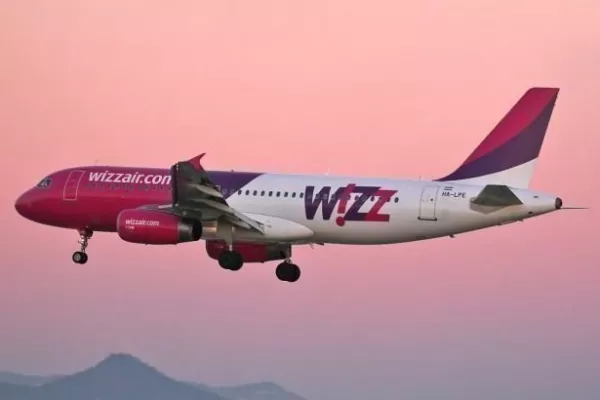Wizz Air chief executive Jozsef Varadi has said that he hopes to see a way out of the COVID-19 crisis that has devastated the airline industry in the next six to 12 months.
The London-listed budget carrier is currently operating approximately 85% of its 2019 capacity, and will be operating more than 100% of that level by the end of August, Varadi said at the virtual Paris Air Forum.
Wizz Air expects to fully recover from the coronavirus crisis as travel demand rebounds from the pandemic, Varadi said.
Speaking at the virtual Paris Air Forum, Varadi repeated recent comments that the Hungary-based airline will fly more seats this summer than it was flying two years ago before the pandemic struck.
"From my perspective, 2022 should be a fairly robust year in terms of delivering not just the volume of traffic but also the financial performance attached to it," he said. "I'm looking at 2022 as a year of full recovery for Wizz Air."
Speaking alongside Varadi, Air France-KLM CEO Ben Smith said that he has been pleasantly surprised by the demand among travellers visiting friends and family. "We are hoping to run about 60-65% of capacity this summer."
Varadi And Smith Disagreement Over Airline Regulation
Smith also said that traditional airlines need more time to recover before full competition for airport slots is restored, drawing a sharp response from Varadi.
The suspension of the "use-it-or-lose-it" rule has allowed major carriers to preserve airport access during the coronavirus crisis despite the collapse in traffic, sparking protests from low-cost rivals keen to expand into once-congested airports.
Airlines were required to use 80% of pre-crisis take-off and landing slots or forfeit them to rivals. Major carriers are now pushing to extend a lower threshold and other accommodations through the coming northern winter season.
"It was logical to give airlines a break on the use-it-or-lose-it rule," Smith said in a joint panel appearance with Varadi at the Paris Air Forum, adding that the time is not right for its return. "We don't see our industry in a position yet to put that in place."
The Air France-KLM chief executive also cautioned against allowing budget rivals to "take advantage" of the crisis by expanding into crisis-hit national markets using crew on lower-cost foreign contracts.
But Varadi said that the suspension of slot rules discriminates in favour of state-backed carriers and undermines the European single market. France recently raised its stake in Air France-KLM to 28.6%.
"This is the level of nationalism playing into the game nowadays," Varadi said. "It's not only governments getting involved on the equity side of the industry but [also] protecting that investment through various administrative measures, like slots."
Varadi warned of similar political reflexes in areas such as environmental tax and he clashed again with Smith on European moves to require a minimum percentage of sustainable aviation fuel (SAF), which has lower carbon emissions but higher costs.
The Air France-KLM boss echoed warnings from established airlines that said that the application of the so-called SAF mandate to long-haul routes would end up benefiting non-European rivals.
"We don't want to be put in a position where it alters the level playing field between ourselves and other long-haul carriers," Smith said.
But Varadi said that moves to make intercontinental travel exempt ignore the bigger picture and also pose a serious threat to fair competition.
"Are we responsible for the environment or not?" the Wizz CEO said, urging a "seamless and non-discriminatory" approach to green fuel. "It shouldn't be another way of further distorting the market by putting legacy carriers in a better situation."
News by Reuters, edited by Hospitality Ireland. Click subscribe to sign up for the Hospitality Ireland print edition.









